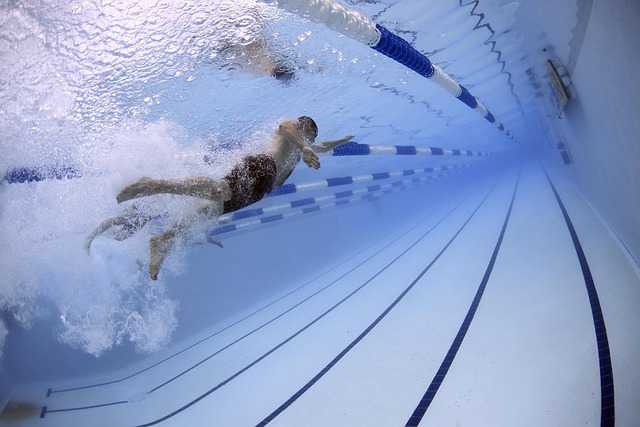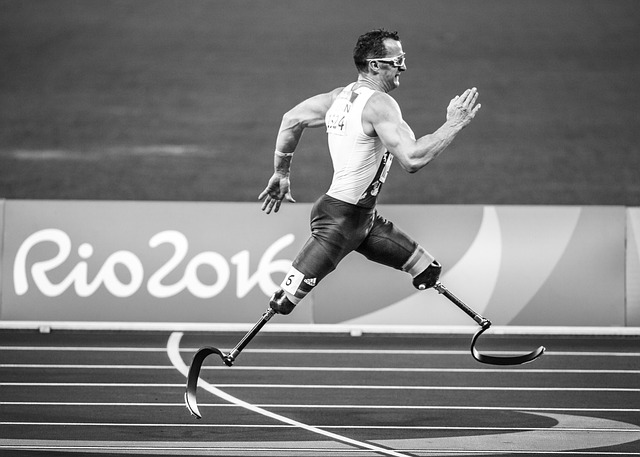
Are you looking to take your athletic performance to the next level? Look no further than the power of nutrition.
In this article, we will explore how fueling your body with the right nutrients can make a significant difference in your performance on the field, track, or court.
From understanding your energy needs to optimizing macronutrient intake and staying properly hydrated, we will delve into the science-backed strategies that can help you reach peak performance.
Get ready to unlock your full potential and fuel greatness through nutrition!
Key Takeaways
- Carbohydrates, fats, and protein all play crucial roles in providing energy for athletic performance.
- Timing of macronutrient consumption is important, with carbohydrates before exercise and protein after exercise being particularly beneficial.
- Hydration is vital for performance optimization, and electrolytes can be replenished through sports drinks or electrolyte powders.
- Recovery nutrition should focus on protein for muscle repair, carbohydrates for glycogen replenishment, and proper hydration, along with foods rich in vitamins, minerals, and antioxidants.
You need to understand the energy needs for athletic performance and how they can be met through proper nutrition.
When it comes to fueling your body for optimal performance, it's essential to know where your energy sources come from. Carbohydrates are a key player in providing energy during exercise as they are easily broken down into glucose, which fuels your muscles. Including complex carbohydrates like whole grains, fruits, and vegetables in your diet ensures a steady supply of energy throughout your workouts.
Additionally, fats play a crucial role in endurance activities by providing a concentrated source of energy that can sustain you for longer periods. Don't forget about protein either! It helps repair and build muscle tissue while also contributing to overall energy production.
To optimize your performance, focus on incorporating a balance of these macronutrients into your diet. Remember, proper nutrition is the foundation for greatness on the field or court!
Macronutrients are essential for building and improving performance in sports. To optimize your athletic performance, it is important to understand the optimal timing and nutrient ratios of these macronutrients. Here are three key points to consider:

Timing: Consuming the right macronutrients at the right time can significantly enhance your performance. For example, consuming carbohydrates before exercise provides the necessary energy for intense workouts, while protein intake after exercise aids in muscle recovery and repair.
Carbohydrate-Protein Ratio: The ratio of carbohydrates to protein in your diet plays a crucial role in fueling your athletic endeavors. Research suggests that a 3:1 or 4:1 carbohydrate-to-protein ratio is ideal for maximizing glycogen replenishment and promoting muscle synthesis.
Individual Needs: It's important to note that optimal nutrient ratios may vary depending on individual factors such as body composition, training intensity, and specific sport requirements. Consulting with a sports nutritionist can help determine the personalized macronutrient needs that best support your goals.
By understanding and incorporating optimal timing and nutrient ratios into your diet, you can fuel greatness and improve your athletic performance.
Hydration: Staying Fuelled and Quenched
To stay fueled and quenched during your workouts, it's important to prioritize hydration. Proper hydration is essential for performance optimization and maintaining electrolyte balance. When you exercise, especially in hot environments, your body loses water through sweat, leading to dehydration. This can negatively impact your athletic performance and overall well-being. By staying hydrated, you can enhance your endurance, power, and strength levels.
To optimize performance, aim to drink water consistently throughout the day and before, during, and after exercise. It's recommended to consume around 17-20 ounces of water two hours before a workout. During exercise, aim for 7-10 ounces every 10-20 minutes to replenish lost fluids. Afterward, continue hydrating with another 8 ounces within 30 minutes of finishing your workout.
In addition to water intake, electrolytes are crucial for maintaining proper hydration levels. Electrolytes help regulate fluid balance in the body and support muscle function. Consuming sports drinks or adding electrolyte powders to your water can help replenish these vital minerals lost through sweat.
Remember that everyone's hydration needs may vary based on factors such as body size, intensity of activity, climate conditions, and individual sweat rates. Listen to your body's thirst cues and make sure to fuel up with plenty of fluids for optimal performance on the field or in the gym!
Recovery Nutrition: Repairing and Replenishing
After a strenuous workout, it's important to focus on recovery nutrition by providing your body with the necessary nutrients to repair and replenish.

To effectively support muscle repair and optimize your recovery, consider these key elements of nutrient timing:
Protein: Consuming protein within 30 minutes after exercise helps stimulate muscle protein synthesis, aiding in muscle repair.
Carbohydrates: Replenishing glycogen stores is crucial for restoring energy levels and supporting future performance. Aim for a mix of simple and complex carbs.
Fluids: Proper hydration is essential for optimal recovery. Replace fluids lost during exercise by drinking water or electrolyte-rich beverages.
Micronutrients: Include foods rich in vitamins, minerals, and antioxidants to support overall health and aid in the recovery process.
By paying attention to nutrient timing and incorporating these key elements into your post-workout routine, you can enhance muscle repair and replenish your body efficiently, setting yourself up for continued athletic greatness.
Sports-Specific Nutrition Strategies
One important aspect to consider in sports-specific nutrition strategies is the timing of nutrient intake. Timing your nutrition properly can have a significant impact on athletic performance. Consuming the right nutrients at the right time can maximize energy levels, enhance muscle recovery, and improve overall endurance.
To illustrate this point, let's take a look at the following table:
| Sport |
Pre-Workout Nutrition |
During Workout Nutrition |
| Running |
Carbohydrates for sustained energy |
Electrolyte-rich beverages for hydration |
| Weightlifting |
Protein for muscle repair |
Branched-chain amino acids (BCAAs) for fatigue reduction |
| Soccer |
Balanced meal with carbohydrates and protein |
Sports drinks with carbohydrates and electrolytes |
In addition to proper nutrition timing, athletes may also utilize supplements and ergogenic aids to further enhance their performance. These supplements can include protein powders, creatine, caffeine, and beta-alanine. It is important to note that while these supplements may provide benefits, they should be used under the guidance of a healthcare professional or registered dietitian.

By optimizing nutrition timing and incorporating appropriate supplements and ergogenic aids, athletes can fuel their bodies effectively and achieve peak performance in their respective sports.
Frequently Asked Questions
Supplements cannot replace a well-balanced diet for optimal athletic performance. While they can be effective in certain cases, they do not provide all the necessary nutrients and cannot address nutritional deficiencies like whole foods can.
How does nutrition impact endurance athletes compared to strength athletes?
Nutrition plays a vital role in endurance athletes' performance by providing the necessary fuel for long-lasting energy and preventing fatigue. Strength athletes, on the other hand, require more protein to support muscle growth and recovery. Meeting specific nutritional needs is crucial for optimal athletic performance.
Common misconceptions about hydration and sports performance include the belief that drinking excessive amounts of water prevents muscle cramps. In reality, dehydration is a key factor in muscle cramps. Another misconception is that staying hydrated aids in weight loss, but it only helps with temporary water weight loss.
Are there specific foods or nutrients that can speed up muscle recovery after intense workouts?
To speed up muscle recovery after intense workouts, consume foods and nutrients rich in protein, such as lean meats, fish, eggs, and dairy products. Additionally, include carbohydrates for energy and antioxidants like fruits and vegetables to reduce inflammation.
How does nutrition differ for athletes competing in team sports compared to individual sports?
The nutrition needs of athletes in team sports can vary based on their age group. Dietary considerations for different age groups, along with proper hydration, play a critical role in optimizing performance and recovery.
 SportsHollywoodLifestyleFashionHome & GardenTrendsPrivacy PolicyTerms And Conditions
SportsHollywoodLifestyleFashionHome & GardenTrendsPrivacy PolicyTerms And Conditions
